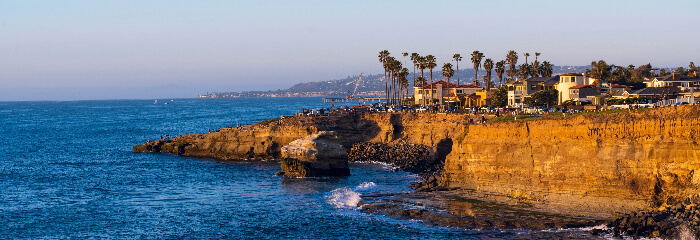State of the state: California short-term rental laws
- Jun 3, 2025 | Jennifer Sokolowsky

In this series of blog posts, we offer an overview of the short-term rental (STR) lodging tax obligations for certain states, along with the latest rules on STR operations.
The Golden State offers a prime locale for short-term rentals, with tourist destinations that range from iconic beaches and desert enclaves to wine country, ski resorts, and famous wilderness areas.
For the most part, the state government leaves it up to local authorities to set rules for short-term rentals. One recent exception, however, involves transparency. In 2024, California passed two laws that require STR operators to disclose more to potential guests in their listings.
One law requires short-term rental (STR) operators to disclose all additional fees or charges guests must pay if they don’t perform obligatory cleaning chores at the end of their stay. The measure also requires operators to offer a detailed description of the chores up front. This information must be included in all advertisements or listings for the STR property.
Another measure requires all accommodation providers to reveal all mandatory costs at first glance. All fees that must be paid as part of the booking — including cleaning fees, host fees, service fees, and more — must be visible in advertisements and listings. Taxes are not included in the law and can be added when the guest is ready to book.
Short-term rental lodging taxes
California doesn’t have a statewide lodging tax. However, California law allows cities and counties to levy transient occupancy tax (TOT) on accommodations that are rented out for 30 days or less — and many of them do.
Tax registration and filing
California short-term rental operators may be required to register with local tax authorities, collect TOT from guests, and file TOT returns. The exact requirements are specific to each city or county.
Tax collection by short-term rental marketplaces
Some vacation rental marketplaces, such as Airbnb and Vrbo, collect local TOT on behalf of operators when the listing is booked. However, marketplaces don’t collect all lodging taxes in all locations, and operators are responsible for making sure they comply with lodging tax requirements.
Local short-term rental regulations
Debates about how to regulate short-term rentals have gained national attention in recent years, and in California, local communities have been active in creating laws to govern and tax the industry. Examples include:
California communities raise lodging taxes
In the November 2024 elections, several California communities voted on ballot measures to increase lodging taxes that apply to STRs. These include Auburn, Buellton, Carpinteria, Del Mar, Dunsmuir, Santa Barbara County, Santa Rosa, and Solvang.
Monterey County bans short-term rentals in some areas
In September 2024, Monterey County amended the county code to regulate STRs, including permit requirements, limits on the number of STRs, and bans in some areas. Among other rules, all STR operators in unincorporated Monterey County are required to register with the county for a vacation rental license and obtain a county business license before they begin operating an STR.
Placer County, California, amends short-term rental rules
In August 2024, Placer County updated some STR operational rules, including changing the definition of a “condo-hotel,” tightening fire safety rules, clarifying requirements for STR local contacts, and addressing penalties and fines.
Oceanside tightens short-term rental rules
Oceanside amended its STR ordinance in June 2024 to cap the number of STRs in coastal areas and ban new non-hosted rentals in residential areas. The city also increased penalties for breaking the rules. Operating without a valid permit can result in fines of $1,500 for the first infraction and $2,500 for subsequent infractions. Hosts with two or more violations are ineligible for an STR permit for 18 months.
Marin County sets caps for short-term rentals
The California Coastal Commission approved new STR regulations in Marin County in April 2024. Under the ordinance, the number of STRs is capped at 1,200 in unincorporated parts of the county, except for Stinson Beach, which has a cap of 192 STRs, and Dillon Beach, which has a cap of 204 STRs. The county is no longer issuing permits for STRs operating in multi-family buildings, and accessory dwelling units (ADUs) built in 2020 or later cannot be used as STRs.
L.A. County catches up with neighbors on short-term rental rules
In March 2024, the Los Angeles County Board of Supervisors passed a new STR ordinance for unincorporated parts of the county requiring STR operators to register with the county and follow other regulations. The measure divides guest stays into two categories: “hosted,” in which the host is present during the stay, and “unhosted,” in which the host is absent, with different rules for each.
Stay on top of California lodging taxes
Avalara MyLodgeTax can help automate and simplify tax compliance for hosts. For more on lodging taxes in California, see our state vacation rental tax guide. If you have tax questions related to vacation rental properties, drop us a line and we’ll get back to you with answers.











